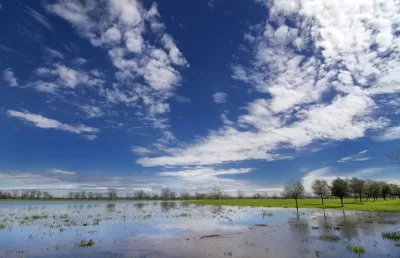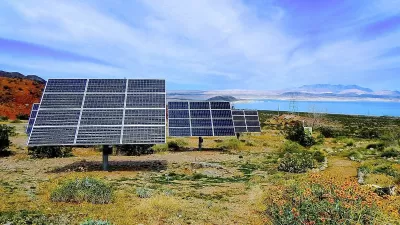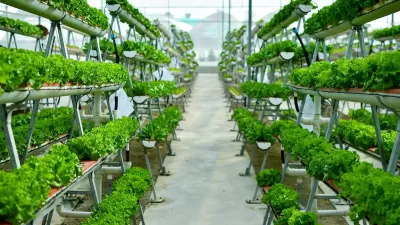In an effort to preserve coastal Texas ecosystems and fight global warming, a new nonprofit is paying landowners to not develop their land.

The Texas Coastal Exchange is an organization providing financial incentives to landowners to protect coastal lands, including coastal marshlands and prairies, reports Perla Trevizo. Payments come from carbon-footprint donations and are based on the land area, the type of ecosystem, and amount of carbon dioxide being sequestered.
"The way the system works, the donor pays $20 to support the storage of one metric ton, with $17 going to the landowner in the form of a grant and the other $3 being used to support the educational outreach and administration of the organization," writes Trevizo.
As part of the deal, property owners agree to not sell or develop their land for ten years. It is a mutually beneficial agreement—natural lands are preserved and landowners, including farmers and ranchers, have a guaranteed source of income.
"The exchange’s initial goal is to enroll 2 million acres of undeveloped coastal lands in Texas. Its hope is that this model is replicated elsewhere in the country," notes Trevizo.
FULL STORY: New Texas nonprofit offers novel approach for preserving coastal lands, combating global warming

Alabama: Trump Terminates Settlements for Black Communities Harmed By Raw Sewage
Trump deemed the landmark civil rights agreement “illegal DEI and environmental justice policy.”

Study: Maui’s Plan to Convert Vacation Rentals to Long-Term Housing Could Cause Nearly $1 Billion Economic Loss
The plan would reduce visitor accommodation by 25% resulting in 1,900 jobs lost.

Why Should We Subsidize Public Transportation?
Many public transit agencies face financial stress due to rising costs, declining fare revenue, and declining subsidies. Transit advocates must provide a strong business case for increasing public transit funding.

Paris Bike Boom Leads to Steep Drop in Air Pollution
The French city’s air quality has improved dramatically in the past 20 years, coinciding with a growth in cycling.

Why Housing Costs More to Build in California Than in Texas
Hard costs like labor and materials combined with ‘soft’ costs such as permitting make building in the San Francisco Bay Area almost three times as costly as in Texas cities.

San Diego County Sees a Rise in Urban Coyotes
San Diego County experiences a rise in urban coyotes, as sightings become prevalent throughout its urban neighbourhoods and surrounding areas.
Urban Design for Planners 1: Software Tools
This six-course series explores essential urban design concepts using open source software and equips planners with the tools they need to participate fully in the urban design process.
Planning for Universal Design
Learn the tools for implementing Universal Design in planning regulations.
Smith Gee Studio
Alamo Area Metropolitan Planning Organization
City of Santa Clarita
Institute for Housing and Urban Development Studies (IHS)
City of Grandview
Harvard GSD Executive Education
Toledo-Lucas County Plan Commissions
Salt Lake City
NYU Wagner Graduate School of Public Service





























